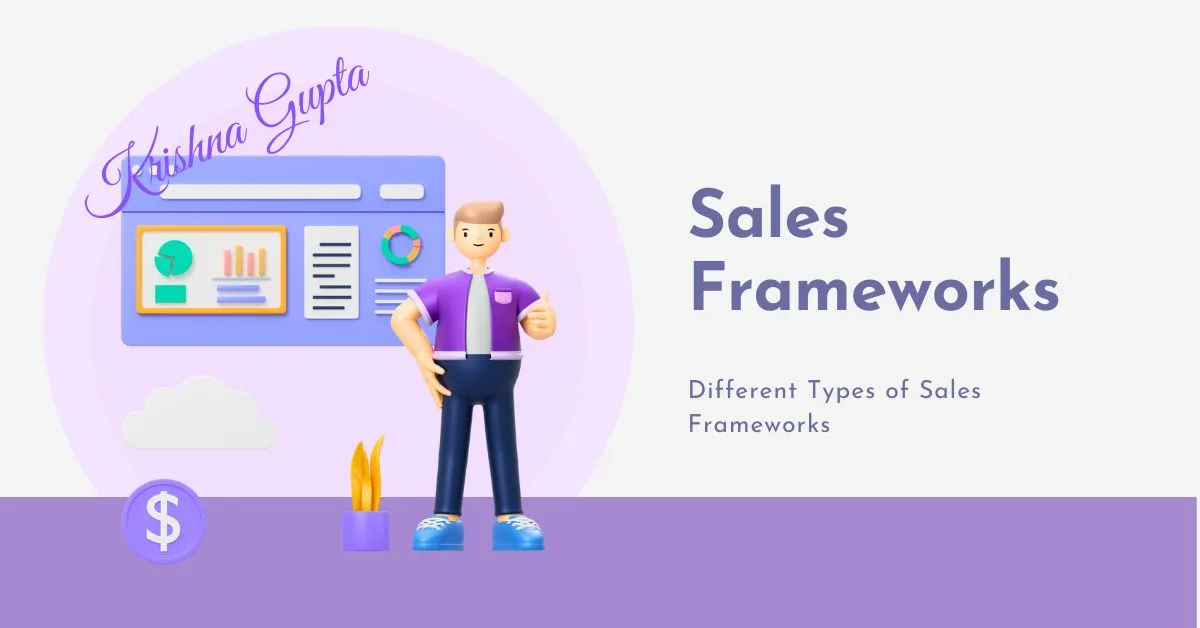Choosing the proper sales framework is like picking the perfect weapon for your sales safari. Each offers unique strategies and tactics to help you conquer objections, close deals, and build lasting customer relationships. Here’s a diverse arsenal of 20 frameworks to consider:
Relationship-Building Frameworks:
- Conceptual Selling: Become a trusted advisor, profoundly understanding the prospect’s business and challenges to build rapport and credibility. (Image of Conceptual Selling Sales Framework)
- The Sandler Selling System: Master open-ended questions and active listening to uncover the prospect’s needs and motivations, fostering genuine connections. (Image of The Sandler Selling System Sales Framework)
- Target Account Selling: Prioritize building solid relationships with key decision-makers in high-value accounts, ensuring long-term success. (Image of Target Account Selling Sales Framework)
Problem-Solving Frameworks:
- SPIN Selling: Uncover a prospect’s pain points and demonstrate your offering’s value through targeted questioning (Situation, Problem, Implication, Need-payoff). (Image of SPIN Selling Sales Framework)
- Solution Selling: Identify the prospect’s specific problems and showcase how your product or service delivers a customised solution, solving their unique challenges. (Image of Solution Selling Sales Framework)
- MEDDIC: Qualify leads effectively using this framework (Metrics, Economic Buyers, Decision Criteria, Decision Process, Issues, and Champions) to ensure your offering aligns perfectly with the prospect’s needs. (Image of MEDDIC Sales Framework)
Challenger Frameworks:
- The Challenger Sale: Become a trusted advisor who challenges the prospect’s assumptions and offers valuable insights, positioning yourself as a thought leader and solution provider. (Image of The Challenger Sale Sales Framework)
- Conceptual Selling (later stages): Shift from passive listening to challenging the prospect’s current situation and proposing innovative solutions, pushing them beyond their comfort zone for growth. (Image of Conceptual Selling Sales Framework)
- N.E.A.T. Selling: Prioritize leads and tailor your approach by identifying the prospect’s Need, Economic buyer, Authority figure, and Timeline. (Image of N.E.A.T. Selling Sales Framework)
Consultative Frameworks:
- Conceptual Selling: Position yourself as a consultant who partners with the prospect to achieve their goals, building trust and long-term relationships. (Image of Conceptual Selling Sales Framework)
- Solution Selling: Emphasize understanding the prospect’s business objectives and demonstrate how your solution can contribute to achieving them, making your offering indispensable. (Image of Solution Selling Sales Framework)
- Value Selling: Quantify the return on investment (ROI) and other tangible benefits that the prospect can expect from your offering, proving the concrete value proposition. (Image of Value Selling Sales Framework)
Inbound Frameworks:
- Inbound Selling: Attract customers by providing valuable content and nurturing leads until they are ready to buy, building trust and brand awareness organically. (Image of Inbound Selling Sales Framework)
- SNAP Selling: Deliver impactful sales pitches using the acronym SNAP (Simple, New, And Pointless), emphasising brevity, clarity, and fresh perspectives to grab attention and spark interest. (Image of SNAP Selling Sales Framework)
Additional Frameworks:
- BANT (Budget, Authority, Need, and Timeline): A simple qualification framework to quickly assess a prospect’s potential and prioritise leads.
- FOMO (Fear Of Missing Out): Highlight the potential consequences of inaction or choosing a competitor to motivate the prospect to act quickly.
- CHAMP (Challenges, Authorities, Money, Priorities): Similar to MEDDIC, this framework helps qualify leads by identifying key stakeholders and decision-making factors.
- Miller Heiman Conceptual Selling: Focuses on identifying the prospect’s buying motives and tailoring your sales approaches to match their unique needs and desires.
- Value-Based Selling: Demonstrates the qualitative and quantitative value of your offering beyond just price, highlighting the impact it can have on the prospect’s business.
- Rapport Selling: Builds strong personal connections with prospects, focusing on mutual trust and understanding to create a positive sales experience.

Remember, the best framework is the one that fits your specific needs and selling style. Experiment, mix and match elements, and customise your approach to navigate the sales jungle and close more deals confidently!
